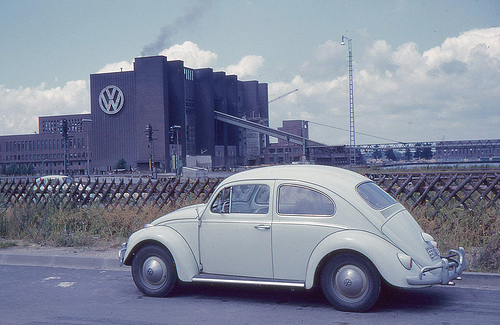How To Maintain Your Bug

After buying a car, performing regular maintenance is critical to ensure its longevity, safety, and drivability.
Evidently, visiting an authorized dealer once in a while is imperative if you want to make sure that your vehicle is well taken care of.
If you own a Volkswagen car, for example, only a professional working at an authorized Volkswagen service center can identify and solve specific malfunctions.
However, there are several maintenance tasks that you can do yourself. These include:

While frequent washing helps you maintain your car in good condition, failing to do it the right way may trigger unwanted repercussions.
For instance, if you use a high-pressure hose very close to rubberized parts, the pressure can rip them off.
Additionally, washing your car too often with detergent can dilute lubricants and deteriorate rubber and plastic parts, such as cables.
If you forget to check and replace your oil and oil filter, your car will eventually become noisy and stop working.
If you don’t know how to change your oil and oil filter, ask a mechanic to show you.
Typically, the oil must be changed every 5,000 miles and the oil filter replaced every 10,000 miles.
Besides oil, your car needs brake fluid, windshield washer fluid, transmission fluid,
power steering fluid, and coolant fluid to function. Make sure that you check all these fluids once a week and replace them as needed.
Changing the fuel filter yourself is quite difficult. However, it can be done once you learn the dos and don’ts.
If you own a high-mileage vehicle, don’t forget to replace the fuel filter annually.
This can help you prevent rust and debris from accumulating inside the fuel tank, which minimizes the risk of plugging.
Check your tires on a regular basis to see whether they’re properly inflated or not.
Before doing this, be aware that the companies manufacturing tires recommend a certain pressure level for their products.
Additionally, check your tires for tread-wear indicators. If you don’t know how these indicators look like,
approach a local tire dealer who can show you the elements you need to check when inspecting a tire.
The latest car models come along with braking systems that have to be replaced periodically.
Although you can learn how to do this yourself, it’s crucial to have your brakes checked by a professional who can tell you whether they function properly or not.
Most manufacturers advise drivers to check brakes once a month and replace them right away if problems are detected. The battery is another important component of a car.
To avoid certain malfunctions, check your battery once a month for corrosion and clean it as needed.
When you battery gets old, replace it with a new one, and check the distributor and alternator to make sure that they’re still working.
Some other things you should inspect include the safety belts, lights, windshield, windshield wipers, and emission control system.
If something seems to be wrong, approach a professional as soon as possible.
If you own a Volkswagen car, never forget that only the professionals working at an authorized Volkswagen service centerhave the expertise, skills, and tools to provide complete service for your car.
License: Creative Commons
image source
Ashely is a new writer that is a diehard Volkswagen driver. To see more, follow her on Twitter @ashelymarie1985.
